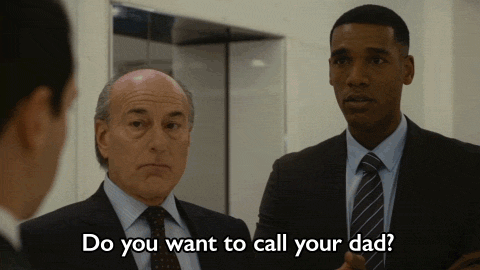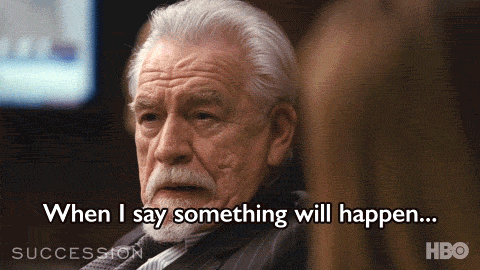This review originally appeared in the April 9, 2020 issue with the email subject line "What the people want."
Because I’m a glutton for punishment, and also because I like to be a part of pop culture conversations, I’m watching Succession in my downtime. It’s ahead of the HBO paywall now. So is The Sopranos, which is still fantastic. But if you have already watched all the better shows in front of the paywall, you can also watch Succession, if that’s your thing. I’ve just started season two.
Like Arrested Development and Schitt’s Creek, it is about the Large Adult Sons (and Daughter) and very rich people who are mostly inept at doing anything but “investing,” which they’re not very good at, either. Unlike those other “rich people are so weird” shows, Succession is mostly a drama, with comedic snacks of schadenfreude, cutting remarks and side-eye.

More importantly for this newsletter, Succession concerns the legacy part of the legacy media business, about which regular readers know I have very strong feelings. It is literally a show about patriarchy.
Succession fascinates me because I’ve been close to those untalented media heirs, and their tv representation rings true. I once met a Murdoch (Lachlan most likely? but I was a drunken bad intern and don’t actually know), and I’ve had conversations with other legacy media sons, the kinds who are concerned with “investment” and “scale.” They aren’t conversations, really, because the media son isn’t concerned with what I have to say, even though he asked for my time.
I’ve only ever met the sons, though, never the fathers.
The show’s patriarch, Logan Roy, is reprehensible, a Rupert Murdoch figure at the top of a global media conglomerate who thinks solely in terms of winning and losing, who like all media execs believes that he has made his fortune by “giving the people what they want.” Everyone in his path bows down, talking dirty but maintaining status quo, always.

The characters in Succession talk about the media business, of good investment and bad investment, mostly with Sorkinesque reverence for institution. The first season mentions local tv buys a number of times. Some scenes show the creation of cable news, demonstrating that the personal attacks come from the top on down when it comes to good TV. The characters talk news and the power that comes with it.
No one in Succession ever mentions journalism.
How are your news habits changing?
“I’m giving the audience what they want,” says every media executive I’ve ever met or seen speak, in one way or another.



